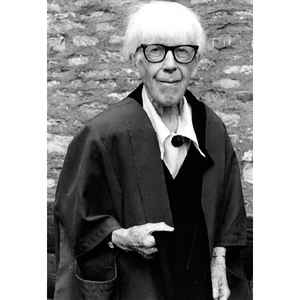(b Durham, 13 Mar 1908; d Devon, 15 Jun 1996)
English composer and pianist
Works for brass ensemble
- Essex Suite (1935) for brass band
- Fanfare (1967) for brass
- Suite (1968) for brass quintet
Biography
 Helen Sinclair Glatz was an English composer who studied with Vaughan Williams, Gordon Jacob, and Sir Charles Groves at the Royal College of Music. She was the first woman to receive the College’s Albert Memorial Medal for Composition and won a scholarship to go to Hungary to study with Zoltan Kodaly and Sándor Végh. She married the linguist Wolf Glatz in Hungary and remained there for the duration of the Second World War.
Helen Sinclair Glatz was an English composer who studied with Vaughan Williams, Gordon Jacob, and Sir Charles Groves at the Royal College of Music. She was the first woman to receive the College’s Albert Memorial Medal for Composition and won a scholarship to go to Hungary to study with Zoltan Kodaly and Sándor Végh. She married the linguist Wolf Glatz in Hungary and remained there for the duration of the Second World War.
Following the death of her husband in 1952 she joined the staff at Dartington Hall in Totnes, where she taught piano, percussion, accompanied choirs, conducted, and worked closely with Imogen Holst and Sir William Glock. She played as a ballet rehearsal pianist for Marie Rambert, and also took the time to further her percussion studies with James Blades, who gave her his prized side drum. Her pupils included bassoon and oboe player Lindsay Cooper, symphonic composer Philip Sawyers, Benjamin Britten’s music assistant (after Imogen Holst) Rosamund Strode (1927-2010), and organist John Wellingham.
Glatz stayed at Dartington for the rest of her life, living in a cottage on the estate and receiving an honorary fellowship in 1995.
She composed chamber music, brass ensemble and percussion music, solo pieces and theatre music. Her Elegy for violin and strings, originally written for Dartington Hall founder Leonard Elmhirst, was performed on tour by the Goldberg Ensemble in 1990 and also played at Dartington in 1994 to celebrate his centenary. Other works include three children’s ballets, a choral cantata and two psalm settings.
Glatz would write Christmas music for Dartington every year. Her Five Carols Without Words for wind quintet gained some popularity after the 1958 Festival and became her best known work, and one of the few to be published.
The music of hers that is most often heard today is her 1930 arrangement for strings of Vaughan Williams’ Hymn-tune Prelude on Song 13 by Orlando Gibbons, originally written for the pianist Harriet Cohen. The arrangement was recorded by Richard Hickox and the London Symphony Orchestra in 1999. The only other work of hers to be recorded is her 1967 Fanfare.
